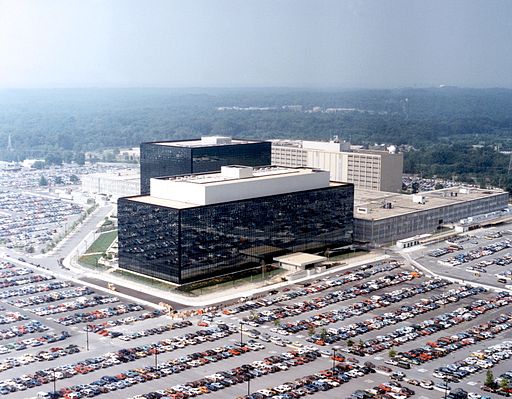![NSA [Public domain], via Wikimedia Commons National Security Agency headquarters, Fort Meade, Maryland](http://upload.wikimedia.org/wikipedia/commons/thumb/8/84/National_Security_Agency_headquarters%2C_Fort_Meade%2C_Maryland.jpg/512px-National_Security_Agency_headquarters%2C_Fort_Meade%2C_Maryland.jpg)
The reaction of the Chinese press has focused on the controversial NSA policies illuminated by the Snowden files; US press coverage instead covered the reactions of the Chinese and Hong Kong governments’. “Surveillance programs reveal U.S. hypocrisy,” reads the headline of a June 14, 2013 article from the People’s Daily – the word “hypocrisy” is borrowed from a Snowden quote referenced in the article. Calling for a “serious self-examination” of US government policies vis-à-vis the NSA, the article deftly uses American voices to construct its argument citing comments from The New Yorker and USA Today. This stands in diametric opposition to comments from the American press that automatically regard Chinese press criticisms of American policies as party-line rhetoric, or as New York Times columnist Joe Nocera writes “another classic response.”
The dichotomy should be clear; Chinese media emphasizes the theme of liberty and ethics while US coverage of Snowden attempts to shift the debate to one of security. Nocera’s piece addresses the problem of US cyber espionage policy linking it to China’s own cyber espionage programs noting that the Snowden scandal will make it “far more difficult to force the Chinese to get serious about sopping their own hacking.” This commentary remains firmly grounded in the ideological camp which condones hacking behavior. Chen Wiehua of the China Daily takes a far more comprehensive view asking:
In the US, (…), the discussion in the mainstream media is often limited to whether the surveillance program has violated US citizen’s rights. Very few seem to question whether such invasive surveillance programs on governments, institutions and citizens of other countries are legal or, for that matter, ethical.
Mr. Wiehua’s article presents solid evidence to back this claim; evidence that is noticeably absent in Nocera’s discussion. Meanwhile, the US media response underscores the vast gulf in tone and substance between Chinese and American reporting surrounding the Snowden case. Indeed, rather than addressing the criticisms raised by their Chinese press, an article in the New York Times simply dismissed the Chinese media response as “snide.”
While both the US and Chinese press considered the Snowden imbroglio within the US-China diplomatic frame, US commentary has consistently played up a confrontational tone between the two states. The Chinese media response has not been beyond reproach in all areas. In fact, the Chinese have overlooked their cyber espionage capabilities by waving the bloody shirt noting, “the United States has a matchless superiority and ability to launch cyber attacks around the globe.” Fact: the United States has met its cyber match with China. Regardless, press coverage on both sides viewed the governments as having a monopoly on decision-making power.
The Snowden Case has provided the Chinese media with the rare opportunity to levy ethical, moral, and policy criticisms against the United States. It is disheartening to see that the Snowden coverage in major American newspapers lacks the moment of national self-reflection that Snowden likely hoped to unleash by releasing the NSA files. Both China and the United States carry a clear policy bias, however, coverage of the Snowden case gets at the broader theme of how globalization does guarantee that no two international takes on one story are the same.







